Archive for the 'sanity' Category
Friday, July 8th, 2016
I have rare blood, O neg, the universal donor. After Orlando I went to give blood and was turned away because my heart was racing (it was the day Jo Cox died; I wanted to say “Haven’t you read the news?” but the poor nurse was just looking out for me.) I’ve since had an EKG and everything’s fine with the ol’ ticker except, of course, that it’s broken. It was broken before Baton Rouge and Falcon Heights and Dallas; it’s shattered now. God in whom I can’t believe, please help this suffering country.
At the same time, I’ve been flattened by a vicious cold. All I can read is Helen Garner and Joan Didion and Diana Athill and this NYer piece on hospice, and all I can watch is Angels in America. It feels like 2005, when the black water drowned New Orleans, or 2003, when Baghdad burned. Baghdad’s still burning. I cling to these words of Roxane’s:
We have to do better than all this “the world is coming to an end.” The world is not coming to an end. The world is changing.
In whatever small way I can work towards justice and peace, let me work.
Posted in grief, history, mindfulness, politics, ranty, sanity, worldchanging | Comments Off on o negative
Friday, June 10th, 2016
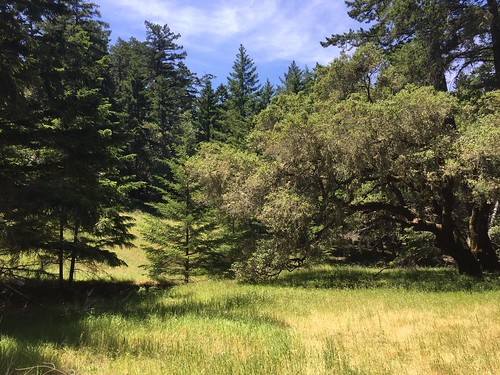
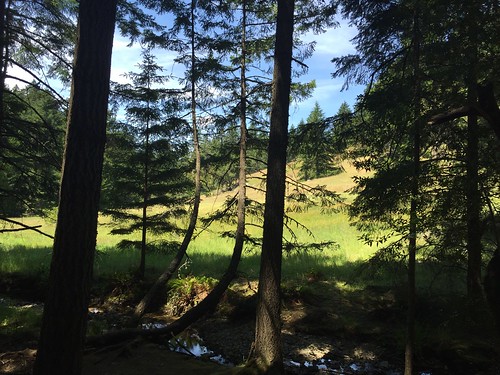
As a fan of sunbeams and meadows, I am very much in favor of Mt Tam.
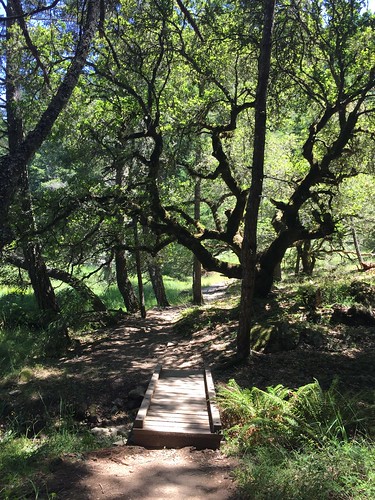
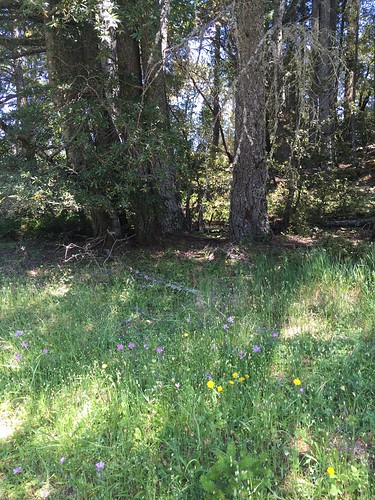
Some of our short roommates share my enthusiasm for these landscapes.
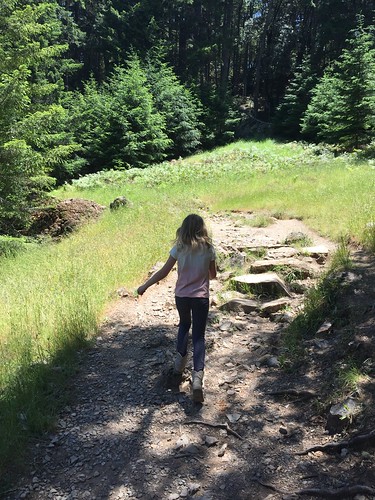
Others find the whole California thing kind of tacky and overdone.
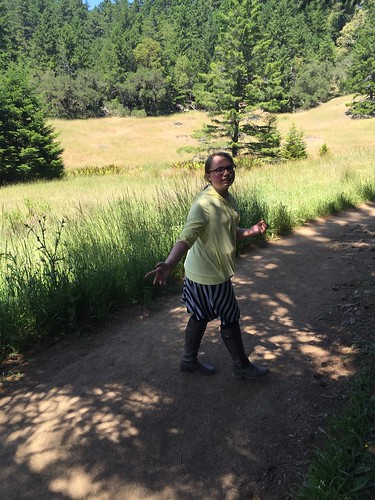
Posted in adventure time, children, happiness, hope, i love the whole world, mindfulness, san francisco, sanity, they crack me up | Comments Off on adventure time: mountain climbing
Wednesday, November 25th, 2015
Yesterday I drove north, past a bonfire and through an almost Sydney-severe rainsquall, to where California State Route 16 West peels off from I-505 into Yolo County. There, the sun came out and shone on the dry Capay Hills, turning them lemon and gold in front of the smudged indigo mountains behind them.
I wanted so badly to go into those warm yellow hills! And then Highway 16 took me around a corner and into Rumsey Canyon, carved out of the stone by Cache Creek, all geology and cattle pasture and gnarled old oaks. I wanted so badly to get out and walk around! And then Google took me up a still narrower canyon through which Bear Creek was running and gently steaming, and I met Tina at Wilbur Hot Springs, a gorgeous place that smells in a very friendly way of eggy farts.
We soaked in the hot green sulfurous water, shared bread and cheese and salami and radishes and olives and champagne and a little chocolate, rode bikes through the nature preserve, past the geyser to the wind chime forest, and talked about books and politics and our children and our partners and the parties we used to throw in the 90s and her painting and my writing and her sister, my friend Jen. We were urged to leave our electronics behind, and I did, so I don’t have any pictures, sorry about that.
Tina and I don’t see each other often enough and this has to be changed. As I drove back, the near-full moon rose on my left through a pink band of sunset. It followed me home to the city.

Today I drove south to a stable in the redwoods, where Salome and I saddled up and rode two bright gold pony mares through the forest to a chain of meadows in the sun. We talked about work and education and our children and her painting and my writing and our plans for the future. I stuck my iPhone in my jacket pocket, so here are some pictures for you.

We saw five mule deer, the sun pink through their absurd ears. One gentle doe was napping under the trees, curled like a cat.

California is so impossibly motherfucking beautiful sometimes, it actually kind of hurts.
Posted in adventure time, food, friends, happiness, hope, horses are pretty, little gorgeous things, mindfulness, politics, san francisco, sanity, women are human, words | Comments Off on adventure time: yolo
Thursday, October 29th, 2015
After a hot spell that seemed to last at least a couple of years, San Francisco finally woke up in late autumn the other day. All the women wore their knee high boots and sweaters and scarves, and everyone looked relieved and cozy. I remembered a moment in ’99 or 2000 when, unlocking the front door of our apartment building on Alabama Street, I felt a breath of chill in the twilight and for the first time ever, got excited for Halloween and the Day of the Dead and Thanksgiving, for pumpkin pie and hot apple cider. For winter in America.
Smells, like music, short-circuit the rational mind. Today I stood over a tray of cheap romance novels outside a thrift store on Valencia and breathed their binding glue and ached to be with Mum. I walked under the Moreton Bay fig in the grounds of St Lukes, and trod on the figs crushed into the pavement just as I always did on the way to Rick’s house. In Rainbow Grocery, I caught the scent of a just-opened tin of Cadbury’s Roses, and what it meant: the family Christmas.
It was hard enough to write about Mum’s death, which seemed to reduce me to a mental age of 12. Dad’s death seems to have left me almost pre-verbal. My appetite is picky and fugitive and my sleep fitful and unsatisfying. I am at most 5. I dreamed I was a mad old cat lady in France, and that I ended up spending my days rambling through the vineyards with the twin sons of the coke-snorting couple in the party chateau next door.
“Most of my dreams are obvious, but that one wasn’t,” I said to Jeremy, who rolled his eyes.
The parents were asleep on the job, but I sat by the river while the wild-haired, speechless little boys played in the dark water, and I made sure they didn’t drown.
Posted in first world problems, grief, history, san francisco, sanity | Comments Off on mourning in america
Wednesday, September 30th, 2015
1. There is a much longer story about the horse show that I will doubtless tell each of you over a bottle of wine some time, which begins with Nick-the-horse dumping me onto a fence at our Friday lesson, such that his bridle came off and I still have a spectacular bruise on my right butt cheek, moves through a 2-hour drive to get a delightful Dutch breeder named Constanza from the showgrounds to the airport (we are fast friends now and I am invited to her farm outside Utrecht), and ends with me enjoying myself in a show ring for the first time, riding the kind of blissed-out, fluid round we can do at home but never before in front of a judge. “Shit,” Casey reports the trainer standing next to her saying of our performance: “they are laying down some good trips.” We were.
2. Once again I have been puzzlingly overlooked for a Macarthur – perhaps something to do with the fact that I haven’t actually written anything – but I was completely goddamn delighted with two of this year’s picks: my longstanding beloved Ta-Nehisi Coates (have you read his new book yet, why haven’t you read his new book yet), and my new fling Lin-Manuel Miranda. I’ve listened to the cast soundtrack of Miranda’s musical Hamilton approximately one gajillion times since it was released last week. It’s a masterpiece. There’s fine-grained, scintillating brilliance in the detail work, a pattern not so much sequential as unfolding ever outwards, revisiting themes to add nuance and complexity and shadow. But there’s also the straight-up shot to the heart of a staggering story, fiercely told. God, just listen. Trust.
3. Three audiobooks by dudes, of varying quality but interconnecting themes: the Oliver Sacks memoir, and then Laszlo Bock’s book about people ops at Google, and then Vaillant’s account of the Harvard Grant Study. You always think you can’t love Oliver Sacks any more, and then you do. People are so real and present and urgent to him. I wanted to be scathing about Bock but his sincerity and curiosity were hard to resist. (Like Maciej Ceglowski and Sebastian Stan, he grew up a communist; maybe that’s why all three seem to have an inner core of diamond-hard idealism. Easy enough to sneer at freedom when you’ve never been unfree.) Bock’s description of evidence-based everything has the distinction of being the first thing I’ve ever read that gave me the slightest interest in working at Google. Still slight, though. Weirdly, Vaillant’s book has made me yell at the car stereo a lot more than Bock’s did. The Grant study is an extraordinary, 75-year-and-counting longitudinal study of a bunch of college men. With this astonishing wealth of material at his disposal, Vaillant’s mistakes are both egregious (autism, for example, is not a “genetic lack of empathy” and fuck you George for saying that it is) and pervasive. The case studies are quite glorious, almost worthy of Sacks, but the conclusions I draw from them are very different from Vaillant’s. A delicious takedown in the Atlantic paints him as a deeply flawed man.
4. Three books by ladies, of uniformly high excellence: Marie Kondo’s Tidying Up is just as life-changing as advertised. Sparking joy is good but the part that clicked for me is the act of thanking your no-longer-needed belongings for their service. My medicine cabinet has never looked so spare. I put off reading What Works for Women at Work for months, afraid that it would make me feel (more) guilty, but in fact it’s one of the most validating books I’ve read in ages. Jessa Crispin’s Dead Ladies Project documents a sojourn in Europe in search of reasons to live. I am devouring it.
5. How is it even possible that I haven’t blogged about Steven Universe yet? There’s probably a German word for the first time your kid recommends something to you and you pay attention to the thing and you realize, Holy shit, this thing is really good. My kid found a good thing. SU is, for me and Claire, that thing. It’s a love letter from maker Rebecca Sugar to her younger brother, and from both of them to the beach towns where they spent holidays growing up, and to the anime they adore, and it’s also a fully realized world with compassionately drawn, three-dimensional characters. It is beautiful and wise and sane and also hilarious and adorable. It’s a love letter to all of us, and so’s Ta-Nehisi’s book and Lin-Manuel’s show and Oliver’s memoir, and I needed all of them, I needed all the reasons I could possibly find to get out of bed, I literally needed reasons to get back on the horse, and they came when I needed them and I’m so grateful.
Posted in bookmaggot, children, grief, hope, horses are pretty, i love the whole world, little gorgeous things, mindfulness, sanity, the empty space, they crack me up, women are human, words | Comments Off on five things because i’ll probably forget again on friday
Sunday, September 6th, 2015
Yesterday should have been Dad’s eightieth birthday. Last year I called him to wish him a happy birthday and it became obvious over the course of the conversation that he had no idea who I was. I ended up sleeping for most of that long weekend. I don’t know why anniversaries like this are so painful, although I know it’s a common enough sorrow. This one comes only two weeks after another terrible one, the day of Mum’s diagnosis in August of 2013.
So I’ve been cranky as hell, and I booked us a trip for Alain’s last weekend without really thinking about it – a night in a hotel near the aquarium in Monterey and a kayak trip on Elkhorn Slough. We got to the aquarium right when it opened and had it almost to ourselves for the first couple of hours. I showed Alain the Open Sea tank and the kelp forest. “Science church,” I said.
The Pacific giant octopus was awake and clambering over the glass. I crouched down at eye level and we looked at each other, mind to alien mind. The children had to drag me away. The bat rays in the touch tank were active as well, jumping out of the water to make eye contact. I stroked their satiny skin.
What makes Monterey Bay so spectacular is a mile-deep undersea canyon that terminates in Moss Landing. Also in Moss Landing: Elkhorn Slough, the largest tract of tidal saltmarsh in California outside the San Francisco Bay. It’s what the bay must have been like in the Before Time (before Europeans, I mean; maybe we Westerners love post-apocalyptic fiction because we are the goddamn apocalypse.) The water dances with seals and otters and fish. The sky is so thick with birds that they look like a mist.
Elkhorn Slough also supports a thriving colony of humans bumbling around in brightly-colored kayaks, and yesterday we were among their bumber (I meant to say number, but who am I to turn down a serendipitous typo?) Our tour guide Jon gave us a good, thorough orientation. When we all said we’d like to see sea otters, he said presciently: “Our real problem’s going to be staying out of their way,” and gave us some tips on what to do if wildlife approached too closely, which I apparently promptly forgot.

We visited these harbor seals first and they worried me even as they made me laugh, swimming under and around our kayaks and popping their silky heads out of the water, the glassy meniscus splitting over their sweet faces like a caul. Then we paddled by a raft of sea otters – at least thirty, probably more, about 1% of the global population. Everywhere we paddled, otters followed. My face ached from smiling at them.
We went under the bridge into the wetlands and saw terns dropping out of the sky, then flying out of the water with bright pilchards in their beaks, gulping as they flew. Stately brown pelicans sailed like galleons.
Fighting the tide to get back to the beach, we paddled near a pair of younger otters that fought and played in the water, an aquatic Alice and Thimble, jumping and Loch-Ness-Monstering joyously. We tried to stay out of their way but as we turned for home, one of them popped up and looked me straight in the eye. It swam boldly over to my kayak, slipping through the water like a thought, and climbed aboard.
I froze. I couldn’t remember anything Jon had told us to do. I am so used to talking to domestic animals that I said, inanely: “No, otter, you can’t be here.” It appeared to find this remark hilarious. It had clever hands and eyes full of mischief and pale whiskers. Its fur was so dense!
I’ve never been so close to a wild creature. I loved it with every particle of my being. With infinite reluctance I turned my back and started paddling. I felt its steady weight slide off the back of my kayak. Then it swam over to Alain’s kayak and clambered on.
“Splash at it!” said Jon, and paddled over to splash at it, whereupon it slipped off and climbed onto Jon’s kayak! He splashed it again and it swam back to me.
“Oh no you don’t,” I said, not wanting to be in violation of Federal laws against interfering with protected wildlife, and splashed my paddle in its adorable face. It frowned at me crossly and swam away.
“That doesn’t happen very often,” said Jon. But not never.
And I thought my face had ached from grinning before.
As you know, Bob, California is a bona fide motherfucking paradise. I’ve seen coyotes hunting in Orinda and Woodside and bobcats trotting purposefully across the Marin Headlands. I’ve seen elephant seals and sea lions and dolphins and whales. I’ve seen more raccoons and squirrels and mule deer and jackrabbits and scrub jays and hummingbirds and herons and egrets and turkey vultures and red tailed hawks than I can easily remember. But I will never forget my otter.
I’ve driven past the big-ass formerly-coal-fired now-natural-gas-fired power station at Moss Landing dozens of times but until two weeks ago I had no idea what this place even was. A chance remark at Jamey’s barbecue prompted me to look it up and book the trip. The protected area is relatively new in the scheme of things, where by scheme of things I mean the huge marine sanctuary that stretches from the Golden Gate to Hearst Castle. The Nature Conservancy started buying up land around Elkhorn Slough in 1971, and donated it to a foundation in 2012.
In the future I hardly dare let myself hope for, all our power comes from cheap solar and the highway traffic is autonomous Tesla art cars. Our food is grown in clean room farms. The cities are dense and green like forest meadows and the Marine Reserves and Protected Areas join up with the National and State Parks into one vast patchwork quilt of wildlife habitat. I’m more grateful than I can say for all the conservationists and scientists and docents and donors working towards that future. I’m glad Daddy raised us all in science church, and I’m glad he was our Dad.
Posted in adventure time, grief, happiness, history, hope, i love the whole world, little gorgeous things, mindfulness, san francisco, sanity, worldchanging | Comments Off on adventure time: elkhorn slough
Tuesday, July 14th, 2015
Maybe 2000 or so? Sarah guesses Mt Coot-tha, ’97 or ’98. That’s Original Dad for sure.
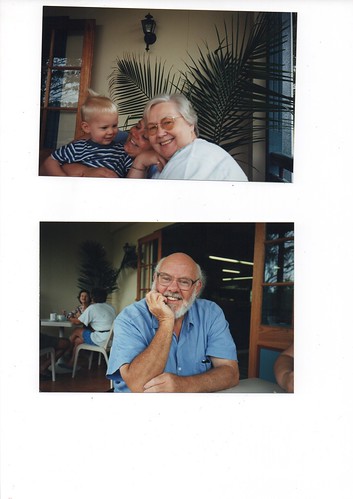
Posted in australia, happiness, history, little gorgeous things, sanity | Comments Off on cafe in brisbane with baby ross!
Thursday, June 25th, 2015
Media Gulch likes to cosplay as Rome:

And the Community Music Center as, I don’t even know, some kind of solarpunk Utopia:

Jules is making new friends, as is her wont:

Good coffee has made it to a sunny courtyard near my office in Palo Alto:

Alice and I share a fondness for sunbeams:


It’s my favorite time of the year, and I’m glad that it’s here.

Posted in children, friends, happiness, hope, horses are pretty, i love the whole world, little gorgeous things, mindfulness, san francisco, sanity | Comments Off on summer’s here and i’m for that
Friday, May 8th, 2015
1. I spent most of the week in Chicago, a city I love for no reason other than that J and I once spent a very happy weekend there. The light over the lake and the severely beautiful architecture always bring back how giddy I felt then, gazing at the Chagall stained glass in the Art Institute, laughing because we had both noticed that the lake sounds like the sea but doesn’t smell right.
2. Despite which, I barely slept the two nights I spent in my (stunning, lake-view) hotel room. By the second night, with my throat raw and my dreams shallow and repetitive, I realized I had caught J’s cold, which he in turn picked up from Julia. I sat through a presentation on Thursday morning with cerebrospinal fluid leaking out of my nose. The plane landing in SFO almost made the left side of my face collapse into a neutron star.
3. This morning when Claire made her customary plea to be allowed to stay home from school, for some reason I agreed, and I’m glad I did. By ten she was feverish. It was a gorgeous dry sunny San Francisco spring day, with all the nasturtiums and roses already in bloom, but the loveliness was largely wasted on us. We ventured out only briefly, for coffee and soup and cold medicine. Claire has spent most of the day asleep on the couch, I on my bed, attended by our faithful kitten doctors.
4. I tried several times to expand on my winter soldier post with a description of how 1980s Australian patriarchy worked, but remembering the microaggressions is painful, and trying to convey their emotional weight is difficult. Pinned down in words, they are dry and seem manageable. It is only the accumulation of hundreds and thousands of them over the years that buries and suffocates you in the end.
5. Turns out I would rather remember the micro-non-aggressions, the people who startled me by saying exactly the opposite of what I had come to expect them to say. Gregan saying Well you are a nice person, why wouldn’t I like you. Professor Brown saying You were one of the most highly qualified candidates, we are glad to have you. Alex saying That must have been difficult. Grant, most of all, saying lots of things I still cherish, but mostly just scooping me up into the sunshine of his solar system, showing me a way to be happy that I had never thought of before. Four cheers for non-toxic masculinity.
Moments, too, where I cried because the pain stopped; like the first time I heard Mary Lambert’s “She Keeps Me Warm” and read that Mary is an out lesbian Christian. Well, why not? This one is fresh in my mind because Skud mentioned the other day that she’d met a member of the Sydney Anglican liberal resistance, and I thought, what a glorious thing to be. But then I realized that I was always a member of the resistance, even when I didn’t know it.
I want so many things back that I can’t ever have, not only Mum and Dad but being young again and in a world so full of possibilities (the twilight sky above Dublin such a rich and light-filled blue, Bjork in her own before-time singing “I don’t know my future after this weekend, and I don’t want to.”) Most of all I wish I could have been in less distress so that I could have been kinder and more kickass. But I did make it out alive and here I am, with my cats and my children and my J, our sunny little village in the city, our found family, perspective, time to read and think and make sense of what happened so that maybe one day I can write about it without jumping all over the place like this, without having to glance quickly into it and then just as quickly look away.
Posted in australia, grief, happiness, history, hope, little gorgeous things, meta, mindfulness, nerdcore marriage, san francisco, sanity, women are human | Comments Off on five things for a friday blog
Saturday, January 3rd, 2015
I just had two weeks off work with the family and absolutely nothing planned, which hasn’t happened in about seven years. It was awesome. I found out what I’m like these days when I’m not working long hours, caregiving and/or stressed out of my goddamn mind.
Quite a lot more relaxed and funnier, it turns out. More patient with the kids. I ride as much as I can, go to the pool, go to yoga classes and museums, see films, eat panettone and peppermint bark, drink Bailey’s and New Zealand sauvignon blanc. I go to friend’s houses and I spend long afternoons at home, reading or messing around on Tumblr. I make much of my cats.

I’m bored out of my mind now and more than ready to get back to work on Monday. Solid result.
Posted in happiness, hope, san francisco, sanity | Comments Off on what i’m like
Wednesday, December 31st, 2014
- Not getting up till eleven this morning because trapped by the cuteness of the cats sprawled on the end of the bed
- We still have most of a panettone and about a third of a box of peppermint bark left
- Seeing Big Hero 6 again and loving it just as much the second time and then unanimously agreeing that we needed teriyaki for lunch
- Ending the year as I began it, actually mansplaining things to the mister
- This year I reconnected with a couple of old friends I had thought I’d lost for good
Posted in fulishness, happiness, hope, little gorgeous things, nerdcore marriage, river of shadows, san francisco, sanity | Comments Off on small good things
Saturday, November 29th, 2014
Just south of the Lions Park out of Manilla, NSW, someone has painted a bearded face on a tree.

It’s the first of eight such faces (that we know of), all taking advantage of the contours of the burls. The second one, named Toby by my nephew though it looks more like Gromit, is my favorite.
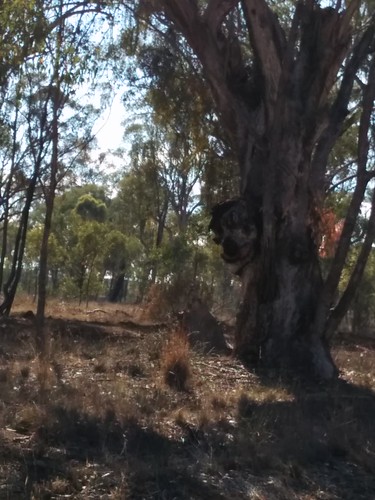
Before this trip to Barraba I tried to describe to myself the difference between my father’s town of a thousand souls and my own beloved city of San Francisco, population 800k but arguably way fewer souls. There are the giveaway jokes: Barraba used to have an asbestos mine, and just missed out on a new abattoir. In New York, everyone’s writing a novel; in LA, they’re working on a screenplay; in SF, they’re building an app.
That second joke gave me a clue. I love the density of narrative in cities, the plaques on London’s Georgian houses, the ghost of the railroad through the Mission, the undergrounded waterways. I thought for a while that Barraba is relatively empty of stories, until I remembered with a stab of sorrow that it used to be full of them, but that my ancestors tried to kill all the people that knew them.
Barraba is in Gamilaraay country. One story I do know is that of the Myall Creek Massacre.
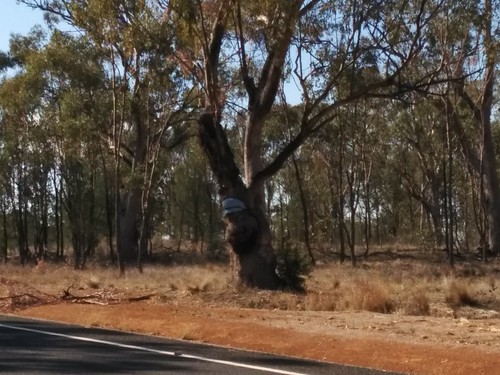
I’ve spent enough time in Barraba to have made good friends and learned a little of their stories. Pam has a great one about her husband Ted riding across a flooded creek to be with her when she had a baby; she remembers the sight of him galloping up to the house, surrounded by a halo of flies. Jane’s family owns a property called Wiry, which I had assumed was an Aboriginal name. Turns out it was part of the land grants to returned soliders, and because it’s a relatively hilly and inaccessible property, the recipient grumbled “Wouldn’t it root ya.” More giveaway jokes.
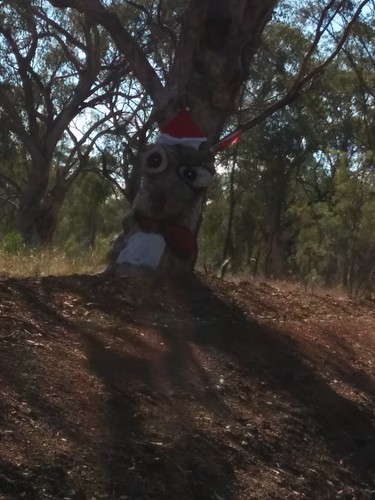
Jane asked me flat out what all seven of you remaining blog readers have probably been wondering: “Are you neglecting the blog because the stuff you’re thinking about is too intense and sad?” Yup. But something really terrific has happened. A researcher has become interested in Dad’s blog, which was critical to his diagnosis of semantic dementia. We have 17 years’ worth of his written records as his condition developed – more than five times the length of the next longest case study. Joanna believes we can extract psycholinguistic markers of the changes to his vocabulary that may help scientists to develop more sensitive diagnostic tests.
As part of collating the material for Joanna, I read a few of Dad’s earliest blog entries. He had a decent line in giveaway jokes of his own:
Tue 10 Feb 1998
Got away late from Sydney. Lasted on the road until 6 o’clock at which time we found ourselves in Gunning, between Goulburn and Gundagai.
Gunning is a town of a thousand souls and very few outstanding features.
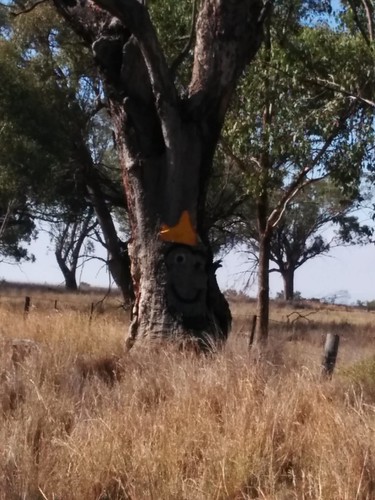
Death is the eater of meaning. It swallows up whole universes, erases stories from the landscape.
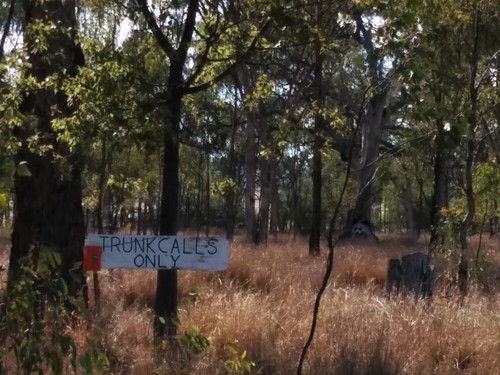
The work of grief is to make sense of loss. We have to make new narratives to mark the place of those that are gone.
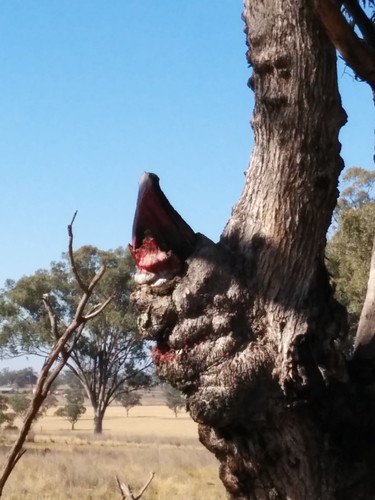
We have to find the faces in the forest.
Posted in adventure time, australia, bookmaggot, grief, history, hope, mindfulness, politics, san francisco, sanity, words | Comments Off on the forest of faces
Sunday, November 24th, 2013
What a year, eh? I said goodbye to Bella and to Jackson; they’re both knee deep in clover, eating their adorable heads off. Dad’s a little worse, Mum’s much better. I called her during her birthday party yesterday. We get another Christmas in Barraba with mah jongg and too much marzipan and Baileys. After that, who knows? Claire and Julia are happy at their respective schools, although they don’t like doing homework, an attitude I am not necessarily helping to overcome when I mutter to them that “Homework is boring.” Although I did vow before I had them never to lie to them, so.
A crowd of us piled into my living room yesterday to drink tea and champagne and watch spellbound the Doctor Who 50th anniversary special, and it could have been written for me, it touched so many of my id vortices: my older and younger selves trying to reconcile with one another, not necessarily in chronological order; my rampant survivor guilt. Plus it soared over the Bechdel test and Kate Lethbridge-Stewart is probably my favourite character in the entire canon, because Brigadier Lethbridge-Stewart is my mental model for the grandfather who died three weeks before I was born. And then the curator came in, and I said: “I know that voice.”
Fall is the most beautiful season in San Francisco and the city has never been more spectacularly lovely. We hiked around McLaren Park, which is like having Golden Gate Park almost entirely to yourself. In a meadow studded with daisies we were struck dumb by a great blue heron that took off and soared right over our heads. Last night on our way to and from her swim lesson, Julia and I gazed at the Golden Gate Bridge just before and just after sunset. Your mind cannot comprehend the scale of it, not even when you have seen it a hundred times. “Did we build it to there or did they build it to us?” she asked. “We started at both ends and met in the middle,” I said. She said: “Oh my.” This morning as Claire and I ran over the hill and back along Precita, the morning sun slanted across the dewy grass in the Coso triangle and made it sparkle.
Posted in happiness, i love the whole world, little gorgeous things, mindfulness, san francisco, sanity | Comments Off on thanksgiving
Wednesday, October 30th, 2013
Things I will miss about Jackson the horse as he enters his well-deserved retirement, a non-exhaustive list:
That he likes to shake his head when I take the headcollar off, and if I let him do that, he will stand quietly while I put his bridle on.
That he likes to stand for a moment when coming out of the shed row to let his eyes adjust to the sunlight.
The way he showed me how to sit in the saddle.
The way he talked to me through the reins.
The way he would reach forward with his outside hind to step forward in a perfect canter depart.
The way he would swagger when he’d jumped a perfect round, swinging his back and showing off. “I’m a good horse!”
The way he grew another four inches at the show, so proud and happy to be there.
The way he would turn around and put his nose on my boot when he needed reassurance.
The way he would neigh crossly if I stopped to pat Zelda the barn cat before paying attention to him.
The way he would press his nose into my back when I gave him cuddles, cuddling me back.
Posted in first world problems, fulishness, happiness, horses are pretty, little gorgeous things, mindfulness, sanity | Comments Off on jackson the horse and me, a love story: the end
Tuesday, September 3rd, 2013
I find a note she wrote me:
“For Rachel
Gwen Harwood
Poet
Bone Scan”
She doesn’t even remember writing it.
I look it up and find:
In the twinkling of an eye,
in a moment, all is changed:
on a small radiant screen
(honeydew melon green)
are my scintillating bones.
Still in my flesh I see
the God who goes with me
glowing with radioactive
isotopes. This is what he
at last allows a mortal
eye to behold: the grand
supporting frame complete
(but for the wisdom teeth)
the friend who lives beneath
appearances, alive
with light. Each glittering bone
assures me: you are known.
Posted in grief, little gorgeous things, mindfulness, sanity, words | Comments Off on sorting through mum’s stuff
Tuesday, June 25th, 2013
The brilliant Sumana made this exact point to me two weeks ago:
Butler creates woman protagonists (such as Lilith in the Xenogenesis trilogy) who are seen as traitors for consorting with their enemies or oppressors. Her stories have the capacity to make the so-called traitor’s motivations understandable, often showing a willingness to negotiate as the product of a stubborn sense of hope for the future that can take the form of a commitment to nurturing a new mixed race.
From the book I cannot put down, Ann Cvetkovich’s Depression: A Public Feeling. Cvetkovich has also introduced me to Jacqui Alexander’s phrase “radical self-possession,” an idea that instantly caught fire and ran down every blood vessel and nerve in my body like music or healing grace. I asked myself what radical self-possession would look like, and Future Rach (who drops by occasionally to give me hints) said:
“Like me.”
Posted in grief, happiness, history, hope, mindfulness, politics, sanity, women are human, worldchanging | Comments Off on complicity
Sunday, May 12th, 2013
There are only two in the USA: the other is in Tennessee. This one was founded by Pat Derby, an Englishwoman descended from Shelley who found herself in Hollywood training cats, bears and elephants for shows like Lassie and Daktari. She hated the violence and cruelty of the industry and exposed it in a pretty wonderful, if bleak, book cowritten by Peter S. Beagle, who also wrote The Last Unicorn. She died in February.
The sanctuary is only open twice a year and you have to buy tickets in advance. It’s up in the Sierra foothills and it was a scorchingly hot day. Six hundred people came. I grumbled about the heat and having to wait in line for a shuttle, and then the shuttle came and we were taken to a picnic area where there were two Asian elephants to the left of us and three African elephants to the right. Gypsy, Wanda, Mara, Maggie and Lulu.
There are massive steel fences around their enclosure but the enclosures are vast – acres upon acres. That they wanted to visit with us at all is astounding to me. We were kept at a safe distance, about twenty feet, but we were in the presence of elephants, and this is an ungainsayable thing. I’ve seen elephants before but I don’t think I’ve ever seen happy elephants before. We were there for their entertainment as much as the reverse. They made eye contact.
I believe of them now, as I believe of whales and octopus, that they are sentient. How they must suffer when they are caged or in chains.
Maggie, one of the African elephants, lived in an Alaskan zoo with only an Asian elephant for company. The two have different vocalizations, but Maggie speaks both languages. Gypsy and Wanda came to the sanctuary at different times from different places but are now inseparable. Archival footage of circuses revealed that they had been friends before and had remembered one another for decades. Lulu, rescued from the San Francisco zoo, was the most reticent of the females. She wanted to be near Maggie and Mara but she didn’t particularly care for us. Up on Bull Mountain we saw Nicholas and Prince; Prince also prefers to keep away from humans.
But Nicholas swam for us, and dug a log up from the bottom of his lake. Another animal again in water, his bony head like a hippo’s, the water pouring off his gleaming skin. Graceful and at peace.
It was everything I love most passionately about California: the dry hills, the circling raptors, the ridiculous mule deer, and the people who pour out their lives trying to fight injustice and make safe spaces and be kind.
Posted in hope, i love the whole world, sanity, worldchanging | Comments Off on elephant sanctuary
Wednesday, March 6th, 2013
As part of ongoing efforts to live a more makerly, human life, I resolved to make a thing a month this year. Not a vasty thing; something small and manageable. In January, I cross-stitched a little constellation embroidery for each of the girls. In February I hand-wrote a letter to a dear friend.
This month I will try out the Kintsugi repair kit that J gave me for my birthday. It repairs ceramics with a mixture of glue and gold dust. I will test it on some of our table china, and when my technique is alright, I will fix a chip in the beloved bowl I brought home from Avanos, in Turkey.
When I first read about Kintsugi, I cried. The chance to be more beautiful in the broken places feels like a gift, like grace.
Posted in fulishness, happiness, hope, little gorgeous things, mindfulness, nerdcore marriage, sanity, worldchanging | Comments Off on a thing a month
Tuesday, January 15th, 2013
Me: I dreamed about privilege. Like, privilege made concrete. It was this beautiful school or college for boys, only for boys, built out of sandstone with gardens inside that you could only catch glimpses of if you were locked out, which I was. Like Cambridge. And I realized I thought that would cure my depression. It was the Opposite Of Depression. I know how ridiculous it is but that’s how it felt.
Jeremy: Belvedere.
Me: …?
Jeremy: All those Escher paintings that go round and round in circles and defy physics.
Posted in grief, mindfulness, nerdcore marriage, sanity | Comments Off on nerdcore marriage at its insightful best
Friday, December 21st, 2012
I didn’t have a fantastic year in reading, to be honest – I think the Kindle threw me off and that my patterns of acquisition and consumption have yet to rebalance. Here are some books I read that I liked very much:
Nonfiction
Fiction
I guess it wasn’t such a terrible year in reading at that. There are two books, though, that I want to push into your hands in an overbearing yet adorkable bookseller-or-librarian-ish way: Constellation Games and Fair Play. Please read these books. They are very great.
It feels like cheating to recommend Leonard’s book when I have known and loved Leonard for ten years, but I must have read Constellation Games four times this year and gotten something more out of it each time. It’s a first contact novel and an existential love story and it did more than any other single argument to make me believe games are an important art form, but it’s also incredibly funny and moving and Curic the two-souled purple otter is my new favourite fictional character. For its part, Fair Play is about two seventysomething women living at opposite ends of an attic having conversations about pictures and books. Yes, Tove Jansson is the Moomin person. This book is based in part on her life with her wife.
Why these two? Because I am 41 years old. Because I love animals and nature and am living through a mass extinction I helped cause. Because I am a pacifist living in America, and a progressive anarchist who spent my teens as an evangelical Christian assuming I would die in a nuclear holocaust. Because for my first quarter-century I was much troubled by despair. It’s only in the last decade or two that I have had the luxury of time to tinker with my diet and my neurochemistry and my cognitive behavior to try to make a habit of hope and not horror. Because it’s the Northern winter solstice and that means all the festivals of lights, all the songs and candles in the long darkness, and what all the festivals mean is that physics is real: this will be the longest night of the year, and that tomorrow at dawn one shaft of sun will light up the corbel-vaulted room inside Newgrange [or insert your neolithic solar calendar of choice]. And then everything will start to feel a little bit better. It doesn’t stay dark. As Bill Bryson says, life wants to be. Life doesn’t want to be much. From time to time, life goes extinct. Life goes on.
Constellation Games and Fair Play are quite literally stories of friendship and hope, not in the movie trailer way that makes you wince but in a clear-eyed, fearless way that is able to talk about betrayal and jealousy and irreconcilable differences and the cold empty vastness of space. They are both, in fact, books about how to be a friend, and how to be hopeful. We are chimpanzees with doomsday weapons, adrift on a rock in an immense dark void. We have to take care of each other and we have to believe that things can change for the better. So, you know. RTFM.
Posted in bookmaggot, friends, fulishness, hope, mindfulness, sanity, words, worldchanging | Comments Off on books of the year: stories of friendship and hope


















